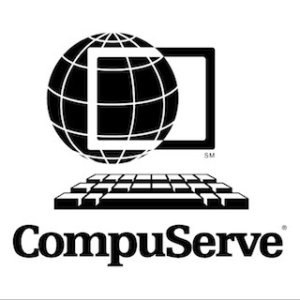Timeline of Section 230
Cubby, Inc. v. CompuServe, Inc
Because CompuServe didn't review the libelous content in question, the Court found that the bulletin board was not responsible for the content in question.

Cubby, Inc. v. CompuServe, Inc
Cubby sued CompuServe for libelous content posted on one of CompuServe’s bulletin boards.
The New York Federal Court held CompuServe could not be held liable as the columnist’s distributor because CompuServe did not review any forum content before it was posted. Because CompuServe had neither knowledge of the content nor a valid reason to know of the content, CompuServe was not held liable.
Communications Decency Act Introduced
Senator James Exon (D-NE) introduced the Communications Decency Act (CDA) in an attempt to regulate obscenity and indecency online.

Communications Decency Act Introduced
Senator James Exon (D-NE) introduced the Communications Decency Act (CDA) in an attempt to regulate obscenity and indecency online.
Stratton Oakmont, Inc. v. Prodigy Services Co.
In a suit similar to CompuServe, Prodigy was being sued for libelous comments posted on one of its bulletin boards. Unlike CompuServe, Prodigy lost, setting a legal precedent to moderate content in an "all or none" fashion.

Stratton Oakmont, Inc. v. Prodigy Services Co.
In a suit similar to CompuServe, Prodigy was being sued for libelous comments posted on a Prodigy bulletin board.
However, the same NY Court ruled that Prodigy was liable for the posts of others. This was because, unlike Compuserve, Prodigy moderated its message boards and deleted some messages for content that was “offensiveness and ‘bad taste.’” The Federal court thus decided that Prodigy was more like a publisher.
In essence, because Prodigy was engaged in removing some offensive content and trying to provide a more suitable platform for its users, Prodigy was decided to have assumed liability for all posts. The result created a legal precedent to moderate all or moderate none.
Rep. Chris Cox identifies a market failure
In 1995, Chris Cox read about the Prodigy case while on a flight from California to DC. Out of concern, he penned an outline for a bill to tackle this very issue while flying on his way to a regular session of Congress.

Rep. Chris Cox identifies a market failure
“In 1995, I was on a flight from California to Washington, DC during a regular session of Congress when I read a Wall Street Journal story about a New York Superior Court case that troubled me deeply. The case involved a bulletin board post on the Prodigy web service by an unknown user. The post said disparaging things about an investment bank. The bank filed suit for libel, but couldn’t locate the individual who wrote the post. So instead, the bank sought damages from Prodigy, the site that hosted the bulletin board…
The reason the court offered was that unlike CompuServe, Prodigy sought to impose general rules of civility on its message boards and in its forums. While Prodigy had even more users than CompuServe and thus even less ability to screen material on its system, the fact it announced such rules and occasionally enforced them was the judge’s basis for subjecting it to liability that CompuServe didn’t face. The perverse incentive this case established was clear: any provider of interactive computer services should avoid even modest efforts to police its site. If the holding of the case didn’t make this clear, the damage award did: Prodigy was held liable for $200 million.
By the time I landed in Washington, I had roughed out an outline for a bill to overturn the holding in the Prodigy case.”
The above is an excerpt from Rep. Chris Cox’s testimony to House Judiciary on “Online Sex Trafficking and the Communications Decency Act” in October of 2017.
